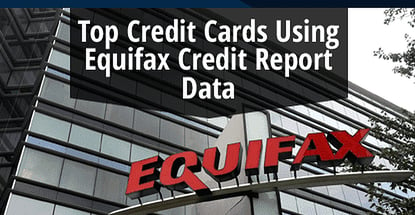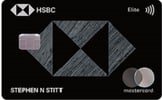In this article, we’ll take a look at a selection of credit cards that use Equifax credit report data to help determine your chances of approval, interest rate, credit limit, and other factors.
Browsing the newspaper rack in any given city, a few things are likely to stand out. In particular, although the major headlines are often similar from front page to front page, many will have broadly different stories filling in the margins. This gives the impression that, while they’re all reporting on the same group of folks, each newspaper seems to use its own sources of information to do so.
The same thing can be said about the consumer credit bureaus. In other words, while all three of your credit reports are about you, the sources of information can vary from report to report. This is because these agencies rely on our creditors to report pertinent information to be added to our credit reports, rather than seeking it out. Additionally, your creditors can choose which report to query when running a credit check, further differentiating your reports.
No Issuer Will Pull Only Equifax Data All the Time
Given that your credit reports can show different information, you may end up with one report that is in better shape than the others. For example, hard credit inquiries occur when you apply for new credit. Many creditors will only pull your credit report from one or two bureaus, meaning you could end up with more hard inquiries on those reports than on reports queried less frequently.
One or two hard inquiries on any given report won’t have much impact on your overall score, typically only lowering it by a few points at most. However, a series of hard inquiries can have an exponentially greater impact, dropping your score more significantly — and acting as a giant red flag to potential creditors.

Whatever the source of your credit report disparities, it can be tempting to look for creditors who will pull only your best credit report when checking your credit.
Unfortunately, it’s nearly impossible to accurately predict which credit bureau a particular creditor will use for any given applicant. That’s because it can vary based on anything from the individual credit product to your particular location or even to the time of day.
Furthermore, no creditor exclusively pulls data from a single credit bureau for every application. This applies to Equifax data, as well as Experian and TransUnion. While some reviewers have reported successfully getting a creditor to pull a particular report upon request (or by freezing one or more of their credit reports), this method is hardly guaranteed to work.
Card Issuers that Commonly Use Equifax for Approval
Although no credit card issuer will use Equifax data reliably for every application, many issuers will tend to use the same bureau for similar applications, such as for the same credit card product. Along those lines, the credit cards on our lists below are reported to frequently use Equifax credit reports for approval.
Remember that this is by no means a guarantee that an application for one of these cards will result in an Equifax credit inquiry. Issuers may pull Equifax data — or they may use Experian or TransUnion. Or they could use any combination of the three. Be cognizant when you apply.
Discover | Chase | Citi | HSBC
Discover
Both its own credit card network and issuer, Discover is responsible for launching the first credit card rewards program offering cash back rewards. Today, the issuer’s range of cards includes several cash back options, not to mention a miles card for those who want travel rewards and a secured card for those who have less-than-perfect credit.
+See More Discover Credit Cards
Although Discover’s best APRs and highest limits go to the most qualified applicants, the issuer has fairly flexible credit requirements for a prime credit card issuer. Discover even offers the Discover it® Secured Credit Card, which provides cash back rewards, a rarity in the secured card market.
Chase
Not only is Chase one of the largest credit card issuers in the world, with more than 93 million cardholders, but the issuer is also rated highly for its customer service. Chase’s huge collection of credit cards includes options for just about anyone, offering cash back rewards and lucrative points programs, as well as a variety of co-branded options for a customized credit experience.
Although Chase has a variety of credit card products, most of its offerings are designed for consumers with good to excellent credit scores. Additionally, Chase fairly stringently enforces its 5/24 Rule, which automatically declines any applicant who has opened more than five new credit accounts within the last 24 months, regardless of your credit score or income. This rule applies to all Chase cards, as well as many of the co-branded credit cards.
Citibank
Citibank has a long history dating back to the City Bank of New York in 1812. Today’s Citi is a major credit card issuer, with more than 54 million cardholders around the world. Citi’s offerings include several credit cards from which to choose, including its much-lauded flat-rate cash back card and intro APR options.
Additional Disclosure: Citi is a CardRates advertiser. Additional Disclosure: Citi is a CardRates advertiser. Additional Disclosure: Citi is a CardRates advertiser.
Plus, for a limited time, earn a total of 10 ThankYou® Points per $1 spent on hotel, car rentals, and attractions (excluding air travel) booked on the Citi Travel℠ portal through June 30, 2024.
Special Travel Offer: Earn an additional 4% cash back on hotels, car rentals, and attractions booked on Citi Travel℠ portal through 6/30/2025.
Cards from Citi are typically aimed at consumers with good to excellent credit scores, plus a student and secured offering for those building credit. Citi offers a wide range of rewards cards, including the Citi Double Cash® Card with one of the highest unlimited cash back rates available.
HSBC
Originally founded as the Hongkong and Shanghai Banking Corporation as a way to finance trade between Europe and Asia, HSBC is now a global bank with cardholders from around the world. HSBC now offers cards that specialize in travel rewards and perks.
- Earn 50,000 Rewards Bonus Points worth $750 in airfare – when booked online through HSBC Travel – after spending $4,000 in the first 3 months of account opening
- You’ll earn 3X Rewards Points on new travel purchases – including airline, hotels, and car rentals -- 2X Points on new dining purchases, and 1X Points on all other purchases
- Receive up to $400 in travel credits per year for all airfare, hotels, and car rentals booked through HSBC Travel
- You and one guest enjoy complimentary, unlimited access to 1,000+ airport lounges provided by LoungeKey™
- Take 3 rides per month and receive a $5 Lyft App credit
- Provides reimbursements up to $800 per claim if your cellphone is stolen or damaged
|
Intro (Purchases)
|
Intro (Transfers)
|
Regular APR
|
Annual Fee
|
Credit Needed
|
|---|---|---|---|---|
N/A
|
N/A
|
21.24% - 25.24% (Variable)
|
$395
|
Excellent
|
As a bank with a worldwide market, HSBC goes the next step to ensure you can use your card everywhere: Each HSBC card comes free from foreign transaction fees. This means you can make purchases anywhere you travel in whichever currency is convenient, without paying for the privilege.
Aim to Keep All Three Credit Reports in Good Shape
All in all, while you can’t predict which credit bureau will be queried when you apply for a new credit card, you can decrease the impact of the somewhat random selection. For instance, you can choose to apply for new cards sporadically, limiting the number of inquiries on all of your reports.
You can also practice responsible credit behaviors, including always paying your debts as agreed and maintaining low balances, so that all three of your reports look their best no matter which one is queried. You should also regularly check all three credit reports for errors or fraudulent accounts.
Think of it in terms of the newspaper stand again. To ensure you’re getting a balanced report on the city’s events, you should look at several papers, with several different viewpoints. One paper may cover an event that the others missed thanks to having its own sources. Any of your three credit reports can include information the others missed — and all three can contain things they shouldn’t.
Advertiser Disclosure
CardRates.com is a free online resource that offers valuable content and comparison services to users. To keep this resource 100% free, we receive compensation for referrals for many of the offers listed on the site. Along with key review factors, this compensation may impact how and where products appear across CardRates.com (including, for example, the order in which they appear). CardRates.com does not include the entire universe of available offers. Editorial opinions expressed on the site are strictly our own and are not provided, endorsed, or approved by advertisers.





![How to Freeze Your Credit Reports in [current_year] How to Freeze Your Credit Reports in [current_year]](https://www.cardrates.com/images/uploads/2018/10/CR-Cool.png?width=158&height=120&fit=crop)




![7 Best Secured Credit Cards: No Credit Check ([updated_month_year]) 7 Best Secured Credit Cards: No Credit Check ([updated_month_year])](https://www.cardrates.com/images/uploads/2018/11/Best-Secured-Credit-Cards-with-No-Credit-Check.jpg?width=158&height=120&fit=crop)
![9 No-Credit Credit Cards with Instant Approval ([updated_month_year]) 9 No-Credit Credit Cards with Instant Approval ([updated_month_year])](https://www.cardrates.com/images/uploads/2021/12/No-Credit-Credit-Cards-With-Instant-Approval.jpg?width=158&height=120&fit=crop)